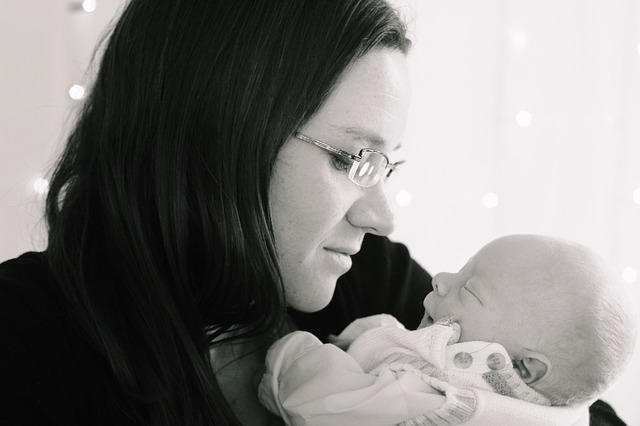Kristi Pahr, freelance writer and mother, discussed how mindfulness helped her to deal with postpartum depression (PPD). One of her problems, experienced by many mothers, was that she did not recognise her systems as PPD but put them down to hormonal change. Unfortunately, PPD can get a hold of you very quickly and its effects can lead to a rapid deterioration in your mental health, your relationships and overall life.
Typically, the father is unaware of the nature, cause and devastating effects of postpartum depression and can further aggravate the condition through their seeming insensitivity, lack of concern or lack of physical/emotional support. The mother may also feel unable to communicate the intensity of their feelings or their deteriorating health, and may be reluctant to communicate their real condition for fear of being seen as incompetent. The symptoms of postpartum depression can be many and varied and this fact serves to compound the confusion on both sides, for mother and father.
Kristi’s Story: How Mindfulness Helped My Postpartum Depression
Factors that contributed to Kristi’s postpartum depression were a loss of the first child during pregnancy, traumatic birth of the second, exhaustion, physical isolation and loneliness. Feelings of inadequacy with a newborn baby often overwhelm even the most competent women and Kristi found that her sense of “not coping” led to “hyper-vigilance” – a constant scanning to check that everything is okay with the baby, heightened sensitivity to stimuli (e.g. a baby’s cry), and increased emotional arousal.
Hyper-vigilance can intensify feelings of inadequacy and anxiety and create a downward spiral in terms of mental health and well-being – the exhausted mother cannot sleep and recuperate which, in turn, negatively impacts her physical health and depletes her energy and capacity to cope with the stresses of daily life with a new baby. It is a common experience that when you are tired, even the smallest problem or issue appears insurmountable.
What Kristi found is that mindfulness helped her to get in touch with her feelings, stand back from them, identify her triggers, defuse her negative thoughts and develop ways to manage her emotional response. It also enabled her to identify the severity of her condition and to seek professional help so that she was able to increase her arsenal of strategies and tactics to manage her condition.
One of these strategies Kristi employed was practising awareness by writing a journal at the end of each day and addressing these insightful questions:
- What feels really good right now?
- What doesn’t feel so good right now?
- What made me feel balanced today?
- What am I grateful for?
Resources: Mindfulness for Postpartum Depression
Research into mindfulness for postpartum depression suggests that mindful practice should begin in pregnancy. Here is a selection of resources for developing mindfulness for pregnancy, childbirth and postpartum depression:
1. Shamsah Amerise, MD, Obstetrician and Gynaecologist, when writing for Headspace.com offers 10 Tips for a Mindful Birth.
2. Katherine Stone, award-winning blogger, provides resources for people experiencing postpartum depression on her blog: www.postpartumprogress.com
Her resources include the following the article: Why Mindfulness Should Matter to Moms
3. Edith Geddes, MD and Medical Director of the University of North Carolina Women’s Mood Disorder Clinic, passionately advocates for screening for, and treating, perinatal mood disorders, especially in rural areas. Being a former professional musician, she offers a mindfulness technique for composing a moment:
Composing a Moment: Mindfulness Techniques in Postpartum Mood Disorders
4. Mind the Bump App – developed jointly by beyondblue and Smiling Mind – is designed to reduce stress during pregnancy and reduce the risk of developing postpartum depression:
Mind the Bump App Improves Wellbeing During and After Pregnancy
5. Andy Puddicombe – The Headspace Guide to a Mindful Pregnancy.
As you grow in mindfulness during pregnancy and the postnatal period, you will be better able to handle the stresses of pregnancy and reduce the possibility and/or impact of postpartum depression.
By Ron Passfield – Copyright (Creative Commons license, Attribution–Non Commercial–No Derivatives)
Image source: courtesy of marmaladelane on Pixabay
Disclosure: If you purchase a product through this site, I may earn a commission which will help to pay for the site, the associated Meetup group and the resources to support the blog.

